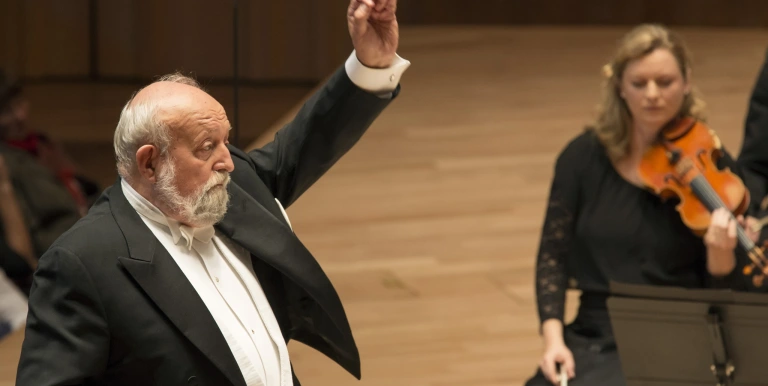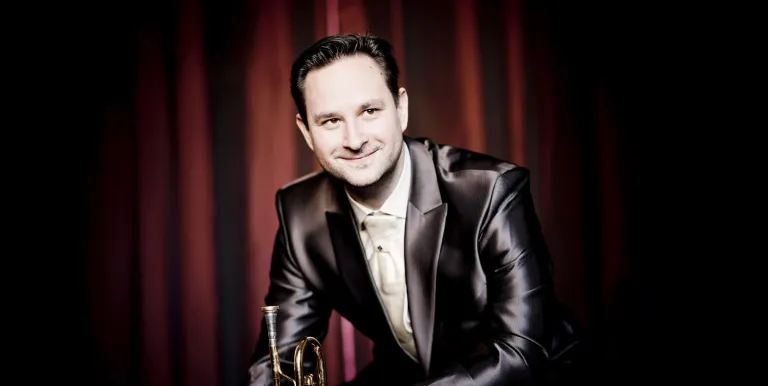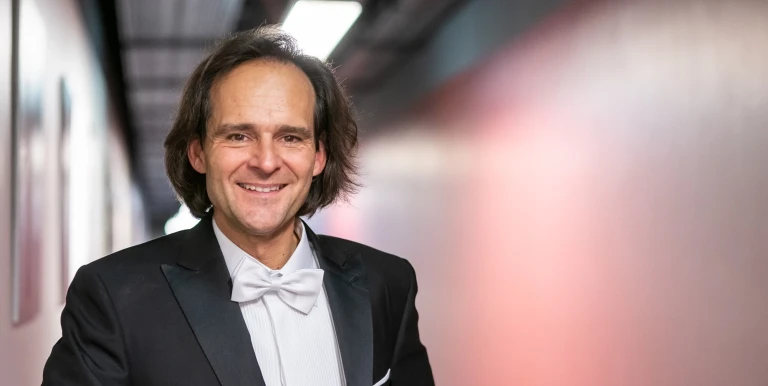Conductor:
Featuring:
Krzysztof Penderecki
Siedem bram Jerozolimy (Seven Gates of Jerusalem)
This choral symphony, which Penderecki composed to commemorate the third millennium of Jerusalem, had its premiere in Israel in 1997. The libretto, which comprises extracts from psalms and the Books of Ezekiel, Isaiah, Daniel and Jeremiah, inspired the composer to a monumental work, which employs three choruses, a narrator and solo singers, and which is often compared to Mahler’s Symphony No. 8.
Penderecki earned fame in the early 1960s with works that relied on radically new, unusual sounds, elicited from string instruments in unconventional ways. It soon became evident, however, that the composer did not consider stylistic extremes an end in itself, and was far more attracted to a new synthesis of avant-garde means and the tradition – it being a deep tradition composers had already forgotten about by the middle of the 20th century.
From the late 1970s, Penderecki turned to late Romantic models with great gusto, altering them and conjoining them with the achievements of 20th-century music, presenting the old expressivity in a new, individual form.
Presented by: CAFe Budapest
-
We wish to inform you that in the event that Müpa Budapest's underground garage and outdoor car park are operating at full capacity, it is advisable to plan for increased waiting times when you arrive. In order to avoid this, we recommend that you depart for our events in time, so that you you can find the ideal parking spot quickly and smoothly and arrive for our performance in comfort. The Müpa Budapest underground garage gates will be operated by an automatic number plate recognition system. Parking is free of charge for visitors with tickets to any of our paid performances on that given day. The detailed parking policy of Müpa Budapest is available here.










